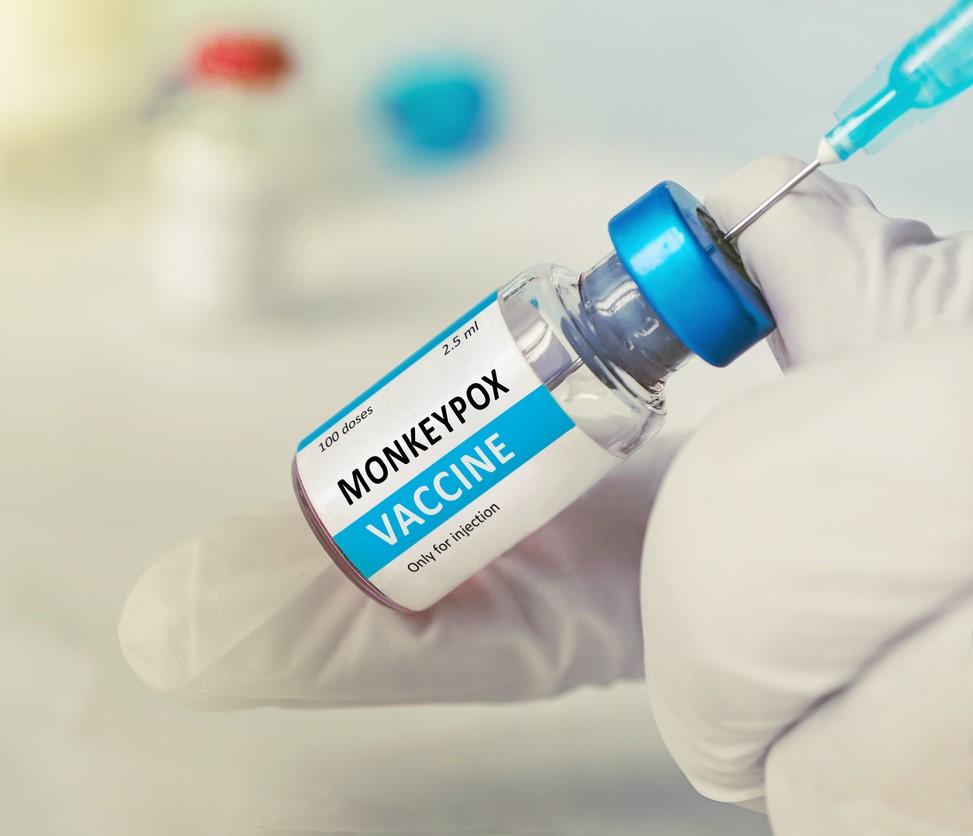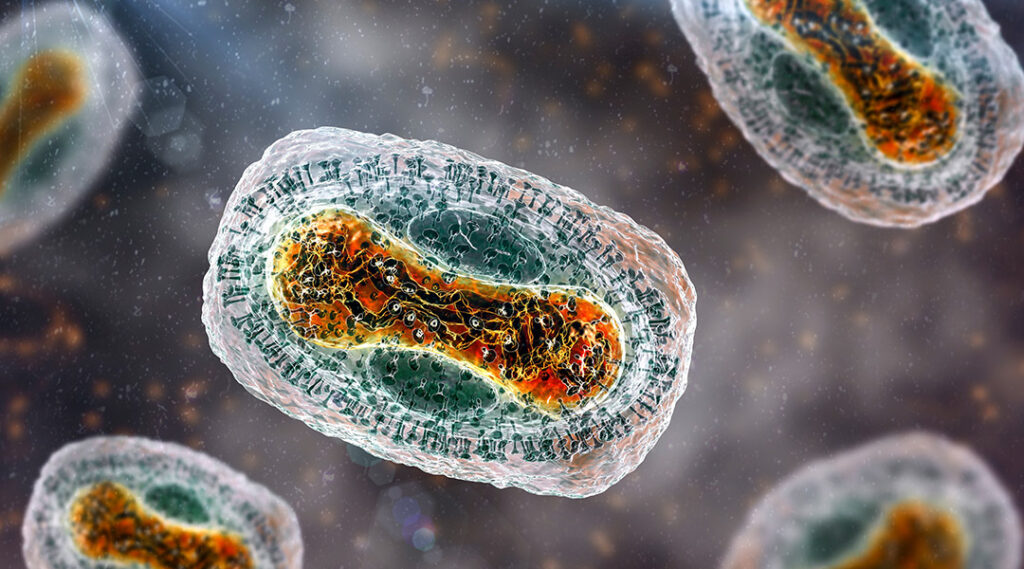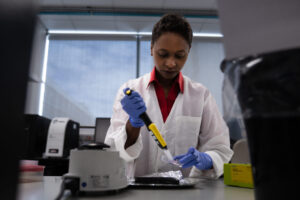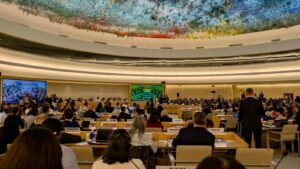Monkeypox, also referred to as mpox, is a rare yet potentially severe viral disease caused by the monkeypox virus (MPXV). Since it is primarily found in Central and West African countries, recent outbreaks in places like the United States and the United Kingdom have therefore raised significant concerns about its potential spread.
On July 23, 2022, the World Health Organization (WHO) declared the global mpox outbreak a Public Health Emergency of International Concern (PHEIC) as a result to the ineffectiveness of public health measures in curbing its spread. Furthermore, this designation, previously assigned to outbreaks like COVID-19, polio, Ebola, and Zika, signifies the highest alert level, consequently imposing a legal obligation on countries to combat the infectious disease threat.
Historically, mpox transmission primarily occurred in low-income African countries through animal-to-human contact. However, recent research indicates a shift towards human-to-human transmission, especially through sexual contact, emerging as the primary mode of dissemination.
Mpox Outbrakes
Previous outbreaks result from various factors. Increased human interaction with virus-carrying animals like rodents and primates, alongside easy global travel, expanded the virus’s reach. Environmental changes and genetic mutations may have enhanced its spread.

While mpox primarily transfers from animals to humans, it can also spread among humans via respiratory droplets, bodily fluids, or contact with contaminated objects. Current outbreaks display new transmission patterns. Recent research indicates that the virus mainly spreads through skin-to-skin contact, leading to high transmission rates through sexual contact.
The incubation period varies from 5 to 21 days, and symptoms range from mild to severe. While no specific treatment exists, a vaccine is available, proving effective for prevention. Managing the disease relies on supportive care.
Mpox in Mexico. Who is at risk?
In March 2022, Mexico recorded its first mpox case in a traveler from Nigeria, where the disease is common. Hunters, farmers, and those with weakened immune systems (HIV, cancer, immunosuppressive therapy) face higher risks.
As of April 11, 2023, Mexico ranked sixth globally in confirmed mpox cases. A Mexican study reveals the outbreak mainly affects men (99% worldwide), with 60% identifying as gay or bisexual and over half living with HIV. Skin rashes are prevalent, with the genital area most affected, hinting at sexual transmission.
This shift in mpox understanding signals a broader public health concern, extending beyond medicine. The disease may trigger bias and discrimination, often perpetuated by untrained or biased healthcare providers.
What’s next?
To curb mpox spread, we must focus on key affected groups and their intimate contacts. This includes people with low CD4 cell counts and detectable viral loads, plus gay and bisexual men with multiple partners.
The AHF Global Public Health Institute partnered with various organizations to organize the Regional Mpox Symposium 2023 in Mexico City. Experts and activists united to eradicate mpox by prioritizing diagnosis and sexual health promotion, with support from Clinica Condesa, Mexico City government, and the National AIDS Centre.
The symposium delved into local issues, addressing diagnosis access and stigma among affected individuals, particularly the presence of homophobic and serophobic attitudes, which often hinder necessary care for STIs. Dr. Jorge Saavedra, AHF Global Public Health Institute’s Executive Director, stressed how stigma hampers essential prevention and care strategies.
Awareness is the key
When governments lack knowledge in addressing health issues among gay and bisexual men and trans women, civil society organizations and community groups can step in promptly to combat stigma. Dr. Saavedra emphasizes learning from HIV pandemic responses.
Dr. Ricardo Baruch, a co-organizer, highlights the continued impact of mpox on gay and bisexual men, making them the prime focus. Effective prevention involves vaccination, with the mpox vaccine endorsed by the WHO and utilized in numerous countries worldwide, including European Union nations, the UK, USA, Canada, Australia, and Latin American countries.
How does the vaccine work?
The vaccine, developed in the 1960s, contains a weakened mpox virus, stimulating an immune response without causing disease. Recent studies affirm its safety and ability to lower transmission risk in high-risk individuals.

Unfortunately, Mexico is yet to approve the mpox vaccine, hindering its acquisition from foreign entities. Nevertheless, preventing mpox transmission goes beyond vaccination. Dr. Baruch, at the mpox symposium, stressed the significance of primary prevention measures like reducing sexual partners and modifying behavior for high-risk groups.
What else can be done?
Aside from vaccination, additional measures to prevent mpox in Mexico include strengthening surveillance and reporting systems for swift detection and response to suspected cases. Certainly, case detection and tracing exist, but they require enhancement as they currently focus on severe cases.
Dr. Antón Castellanos Usigli, a public health specialist, highlighted a lack of sexual health training for healthcare professionals, leading to incomplete medical records. Educating and raising awareness among the public about mpox signs and symptoms is crucial to encourage seeking medical attention when infection is suspected.
References
- Centers for Disease Control and Prevention. (2023). Mpox>if-sick>transmission. Retrieved April 3, 2023.
- Mathieu, E., et al. (2022). Mpox (monkeypox). Our World In Data. Retrieved March 17, 2023.
- Núñez, I., et al. (2023) Epidemiological and clinical characteristics of patients with human monkeypox infection in Mexico: a nationwide observational study. The Lancet Regional Health – Americas.
- Saavedra, J., et al. (2023). MPOX vaccines needed in Mexico. The Lancet Regional Health – Americas.
- El Eid, R., et al. (2022). Human monkeypox: A review of the literature. PLOS Pathogens.
- Pérez-Barragán, E., and Pérez-Cavazos, S.(2022). First case report of human monkeypox in Latin America: The beginning of a new outbreak. Journal of Infection and Public Health.
- Venkatesan, P. (2022). Monkeypox transmission—what we know so far. The Lancet Respiratory Medicine.
- World Health Organization. (2022). Multi-country monkeypox outbreak in non-endemic countries, 21 May 2022.
- World Health Organization. (2022). Vaccines and immunization for monkeypox: Interim guidance, 16 November 2022.
- World Health Organization. (2022). WHO recommends new name for monkeypox disease, 22 November 2022.









